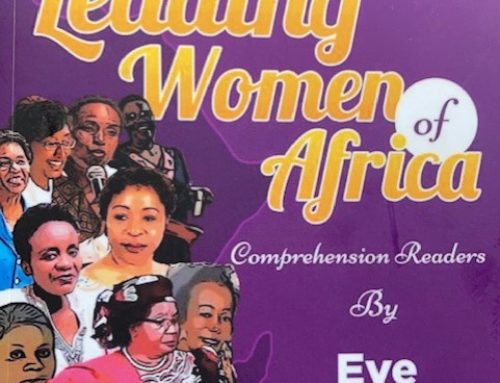Another passage from the chapter titled ‘Some African Cultural Concepts’:
‘Yet it is difficult to kill the African heritage. There remains, in spite of the superficial cultural similarities between the detribalised and the Westerner, a number of cultural characteristics that mark out the detribalised as an African. I am not here making a case for separation on the basis of cultural differences. I am sufficiently proud to believe that under a normal situation, Africans can contribute to the joint cultures of the communities they have joined. However, what I want to illustrate here is that even in a pluralistic society like ours, there are still some cultural traits that we can boast of which have been able to withstand the process of deliberate bastardisation. These are aspects of the modern African culture – a culture that has used concepts from the white world to expand on inherent cultural characteristics.
Thus we see that in the area of music, the African still expresses himself with conviction. The craze about jazz arises out of a conversion by the African artists of mere notes to meaningful music, expressive of real feelings. The Monkey Jive, Soul etc. are all aspects of a modern type African culture that expresses the same original feelings. Solos like those of Pat Boone and Elvis Presley could never really find expression within the African culture because it is not in us to listen passively to pure musical notes. Yet when soul struck with its all-engulfing rhythm it immediately caught on and set hundreds of millions of black bodies in gyration throughout the world. These were people reading in soul the real meaning – the defiant message “say it loud! I’m black and I’m proud”. This is fast becoming our modern culture. A culture of defiance, self-assertion and group pride and solidarity. This is a culture that emanates from a situation of common experience of oppression. Just as it now finds expression in our music and our dress, it will spread to other aspects. This is the new and modern black culture to which we have given a major contribution. This is the modern black culture that is responsible for the restoration of our faith in ourselves and therefore offers a hope in the direction we are taking from here.
Thus in its entirety the African Culture spells us out as people particularly close to nature. As Kaunda puts it, our people may be unlettered and their physical horizons may be limited yet “they inhabit a larger world than the sophisticated Westerner who has magnified his physical senses through inverted gadgets at the price all too often of cutting out the dimension of the spiritual.” This close proximity to Nature enables the emotional component in us to be so much richer in that it makes it possible for us, without any apparent difficulty to feel for people and to easily identify with them in any emotional situation arising out of suffering.
The advent of the Western Culture has changed out outlook almost drastically. No more could we run our own affairs. We were required to fit in as people tolerated with great restraint in a western type society. We were tolerated simply because our cheap labour is needed. Hence we are judged in terms of standards we are not responsible for. Whenever colonisation sets in with its dominant culture it devours the native culture and leaves behind a bastardised culture that can only thrive at the rate and pace allowed it by the dominant culture. This is what happened to the African culture. It is called a sub-culture purely because the African people in the urban complexes are mimicking the white man rather unashamedly.
In rejecting Western values, therefore, we are rejecting those things that are not only foreign to us but that seek to destroy the most cherished of our beliefs – that the corner-stone of society is man himself – not just his welfare, not his material wellbeing but just man himself with all his ramifications. We reject the power-based society of the Westerner that seems to be ever concerned with perfecting their technological know-how while losing out on their spiritual dimension.We believe that in the long run the special contribution to the world by Africa will be in the field of human relationship/ The great powers of the world may have done wonders by giving the world an industrial and military look, but the great gift still has to come from Africa – giving the world a more human face.’
[For another passage from Steve Biko looking at Perceived Inferiority, click here]






[…] [For another extract from Steve Biko’s ‘I Write What I Like’, this time on the hum… […]
[…] [For another extract from Steve Biko’s ‘I Write What I Like’, this time on the hum… […]